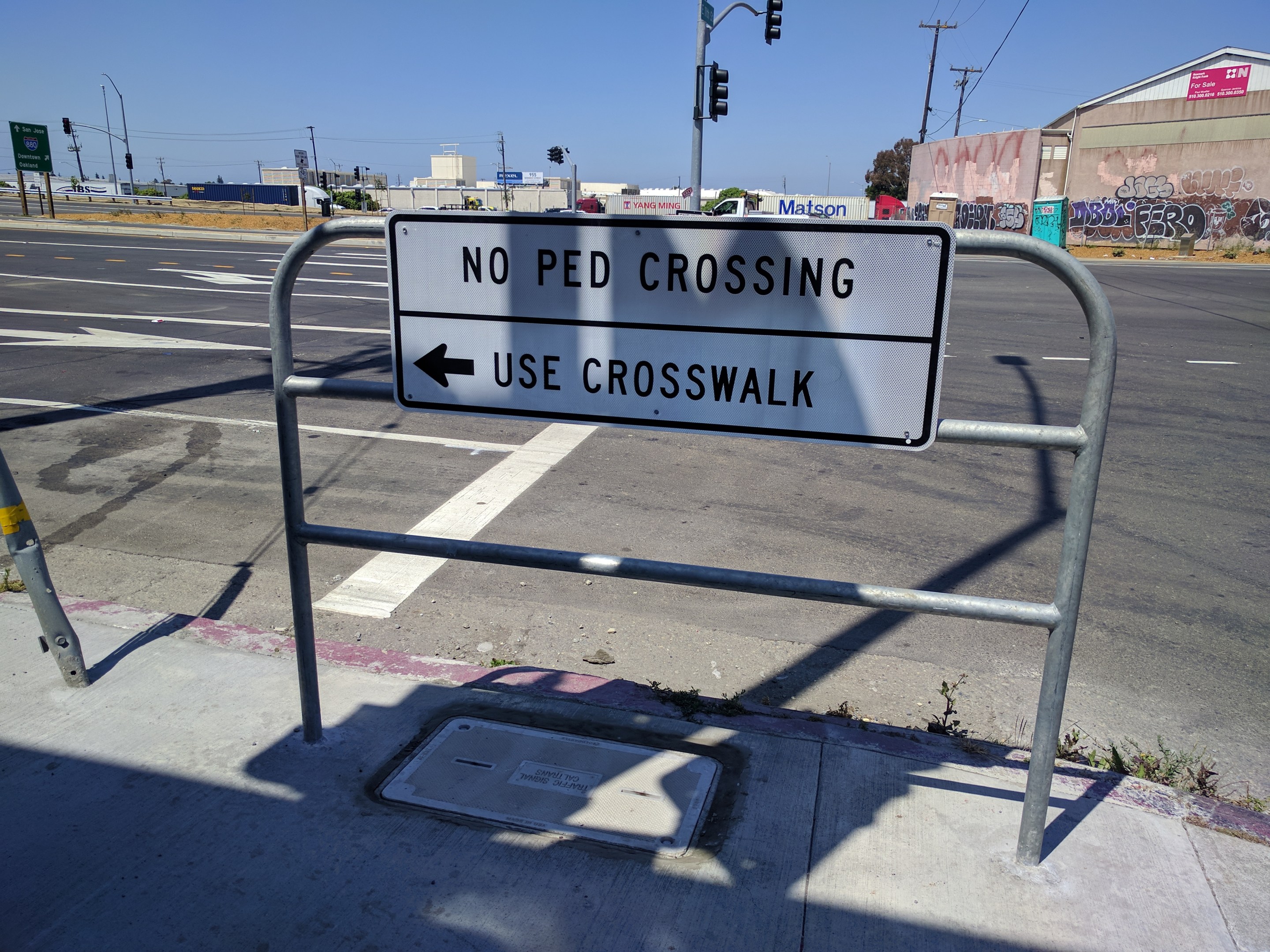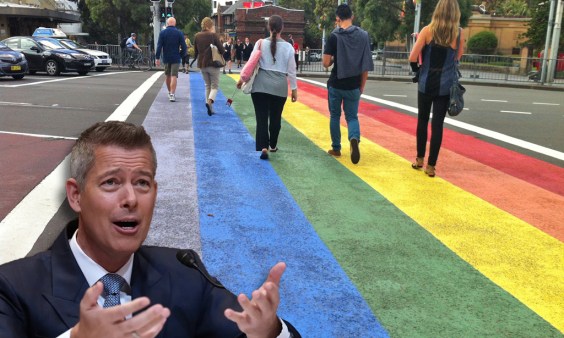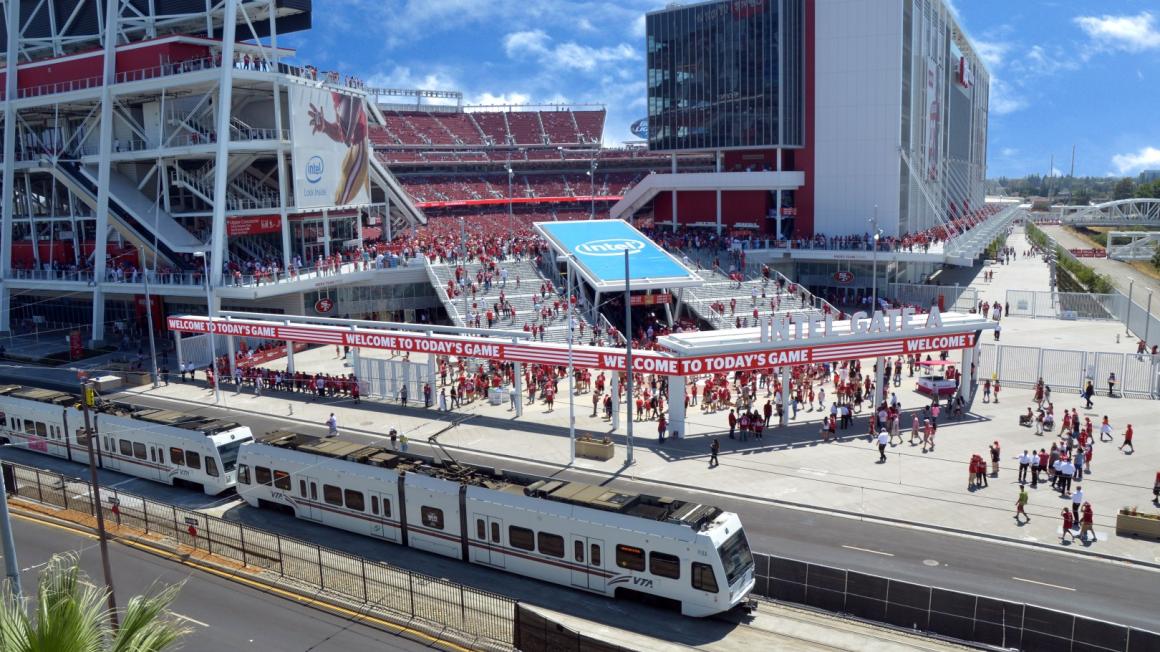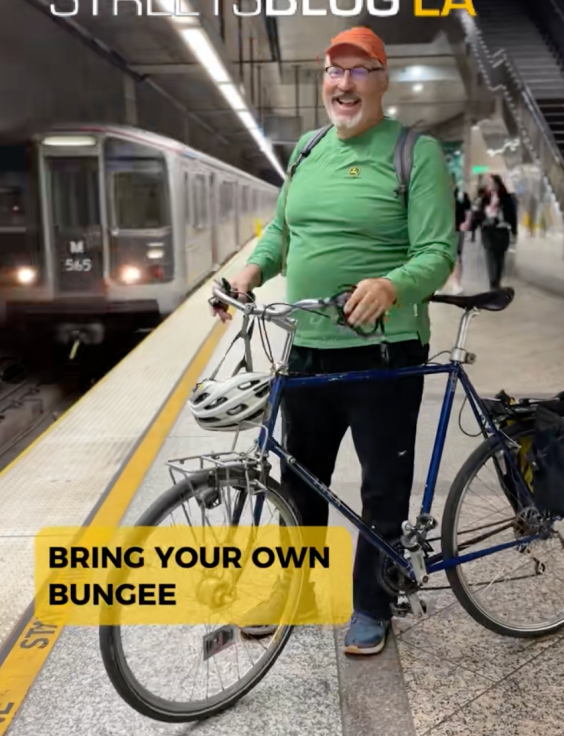Note: GJEL Accident Attorneys regularly sponsors coverage on Streetsblog San Francisco and Streetsblog California. Unless noted in the story, GJEL Accident Attorneys is not consulted for the content or editorial direction of the sponsored content.
Caltrans boasted late last week about an award it received from the Western Association of State Highway and Transportation Officials for its work in Oakland on the "Interstate 880 Safety and Operational Improvements at 23rd and 29th Avenues."
From the agency's press release: "Caltrans is proud of the recognition that these very worthy projects have received, and it underscores our commitment to improving local communities [emphasis added],” said Caltrans Director Laurie Berman. “Whether it was innovatively rebuilding a slide-torn Highway 1 [a different project that got an award], or creating safe, healthy biking and walking options [emphasis added] in Oakland and Alameda, these projects demonstrate when we improve transportation, we improve people’s lives.”
See the lead image from the start of the Fruitvale side of the 23rd Avenue bridge. The nearest crosswalk indicated by the sign is on the other side of the freeway overpass. And even if someone walked there, there's no sidewalk on the opposite side of the bridge to return on. A Caltrans crew on the scene said the sign just means you're not supposed to cross.
Actually, the message Streetsblog got from touring the area this morning is that you're not supposed to be outside of a car anywhere near here.
The projects take local streets over I-880 where the freeway cuts Jingletown apart from Fruitvale. The flyovers were supposed to improve connectivity between the two neighborhoods. Instead, Caltrans essentially rebuilt the street overpasses as if they were freeway ramps. They are completely uninviting and uncomfortable to walk on--and positively dangerous to bike on.
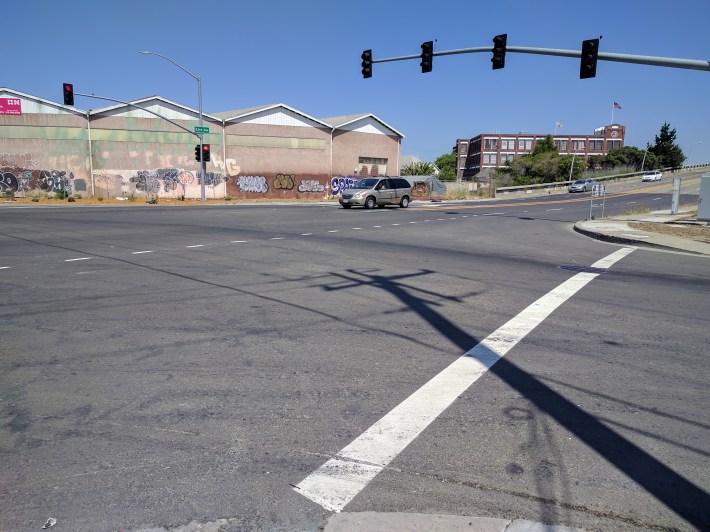
The landings of the overpasses are full of "no ped crossing" barriers (as seen in the lead image) and what cross walks there are require multiple stages to get across streets, with beg buttons and long waits at every stage. Put simply, every barrier to walking that can be imagined (short of just having no sidewalks at all and banning walking) is employed.
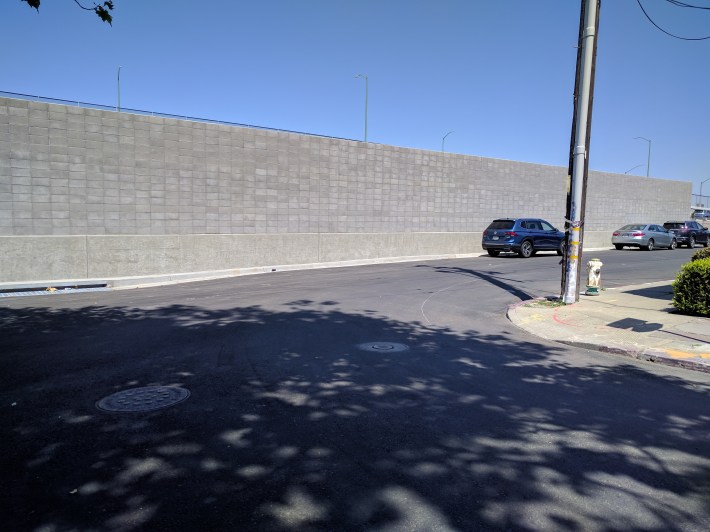
As to biking, the gutter-pan bike lane sop stripes they've painted leave would-be cyclists wedged between speeding traffic and concrete crash barriers.
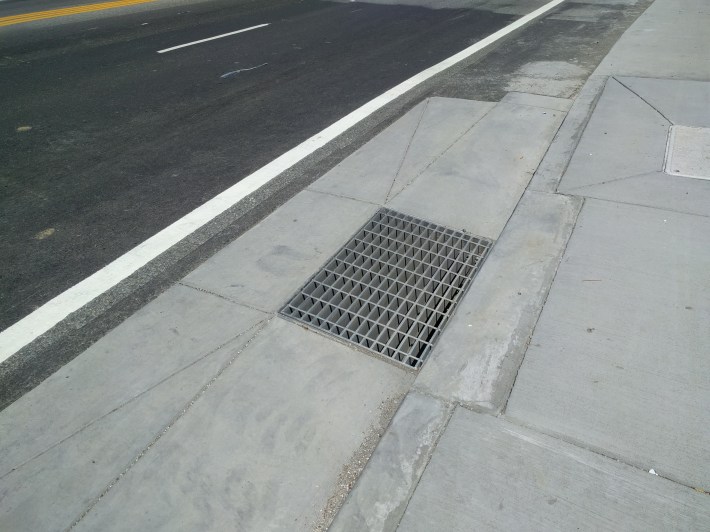
Below is the ramp from I-880 onto the 29th Avenue overpass. It's hard to see, but there's actually a bike lane crossing in front of all those speeding cars launching up the ramp from the freeway. But no sidewalk and, obviously, no crosswalk on this side. That side of the bridge, by the way, connects Jingletown to Lazear Elementary school in Fruitvale.
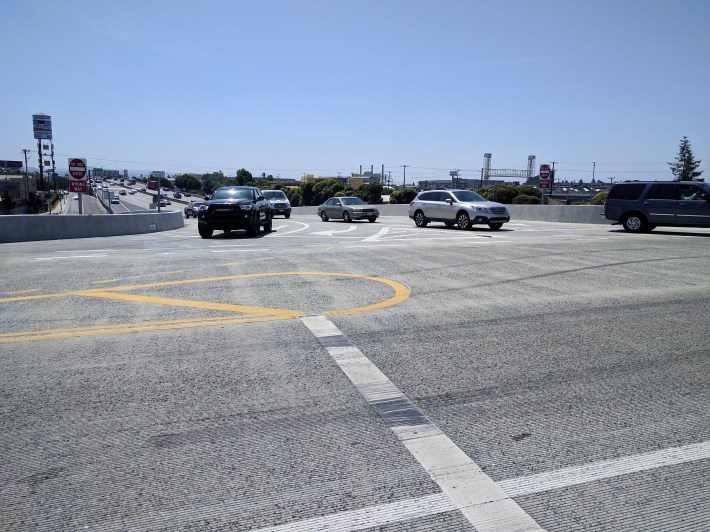
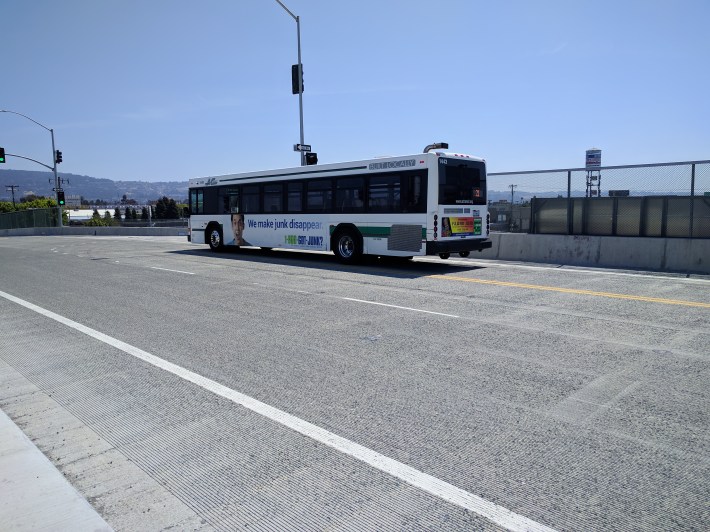
In a previous post, Bike East Bay's Robert Prinz correctly called parts of the design of the $62 million project "engineering malfeasance." He explained that this award, and Caltran's self congratulations on 23rd and 29th Avenues, show the danger of allowing the agency to define for itself what constitutes bike lanes and pedestrian safety.
He added that:
The much needed S.B. 127 “complete streets” bill is making its way through the legislature right now, and would require Caltrans to include bike/walk facilities with all new state road and bridge projects starting in 2022.
...even if S.B. 127 is adopted, there is still an unmet need to revisit existing Caltrans roads and bridges like this [new] 23rd/29th Ave overpasses project, to implement bike/walk priority retrofits proactively, as opposed to waiting decades for another major infrastructure project.
Let's hope some progress will be made as this legislation winds through Sacramento. In the meantime, here's a little more insult to add to the injury from Caltran's release on the award: "These accolades emphasize the significance of these projects to their communities. People in Oakland and Alameda, by foot or pedal, have new ways to connect, commute and commune that don’t require the use of a personal automobile."
